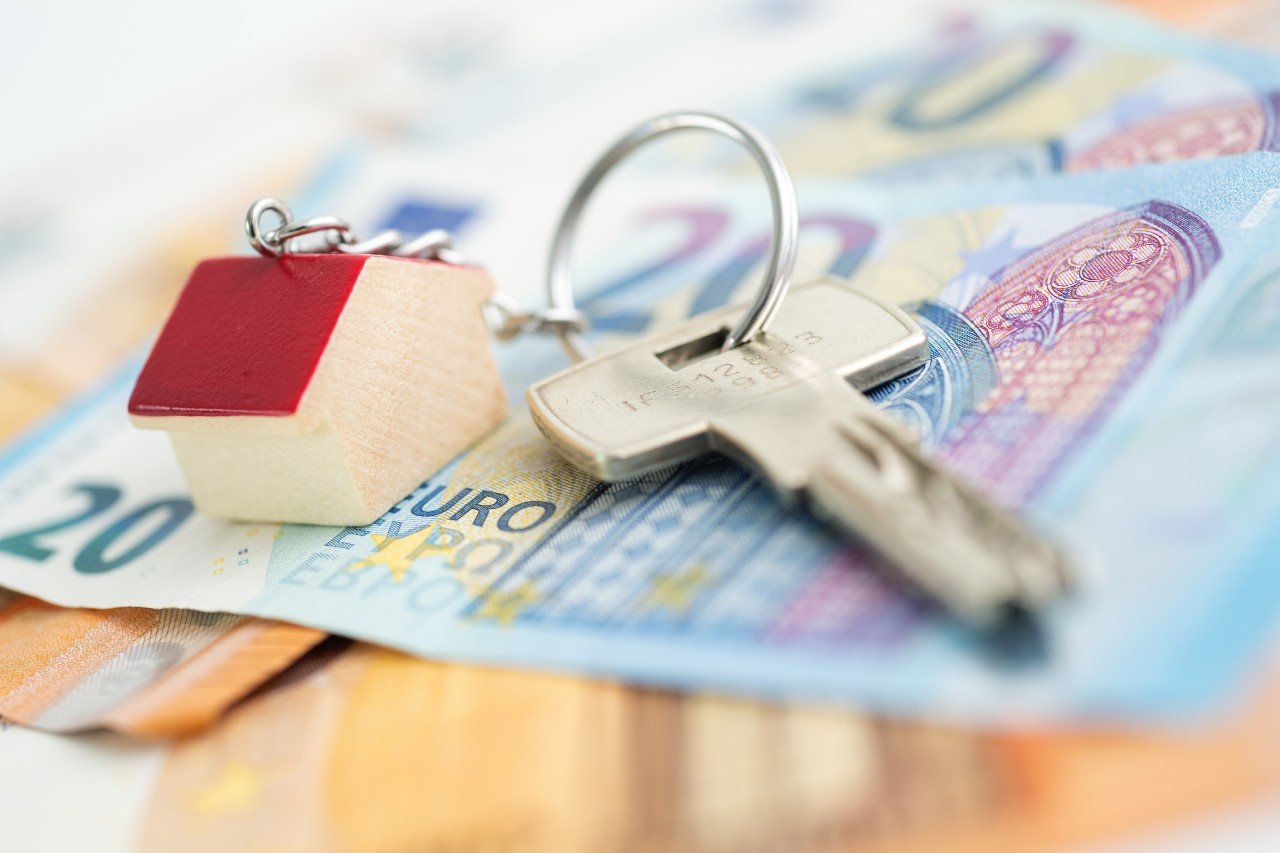Germany is well known for being a nation of tenants, but with rents rising fast across the country, a significant number of people are opting for the security of home ownership over life in the rental market.
Aside from escaping spiralling rents, there are numerous other reasons that drive around 45 percent of people to buy in Germany, like security in their old age, an inheritance for their children, or the freedom to truly make their home their own.
Though house prices have seen a steep increase in boom cities like Berlin and Munich in recent years, many towns and cities around the country are still very affordable to buy in – but there is a slight catch.
Along with all the paperwork, there are a number of additional costs you need to take into account when putting down money on a new home. Most of them affect everyone, but some are more likely to fall on the shoulders of foreigners.
READ ALSO: Bargain ‘B-cities’: The places to buy property in Germany if you’re on a tight budget
In general, be prepared to budget an additional 10-15 percent of the house price for administrative and tax costs – though a lot does depend in which state you’ve opted to live in. Here are the costs you need to know about so you don’t get caught unawares.
Estate agent fees
Like death and taxes, paying estate agents fees seems to be an inevitability of selling a house almost anywhere in the world. In Germany, however, you also pay commission when buying one, as if to say a big thank you to the estate agent for being such a good salesperson.
Up until December 23rd, 2020, this commission was often paid entirely by the purchaser, and could be as much as 7.14 percent of the purchase price in states like Berlin and Brandenburg, or 5.95 percent in places like Hesse.
Since then, however, a new law stipulates that people selling houses in Germany can no longer funnel all these additional costs onto the buyer. Instead, if they hire an estate agent and draw up a contract with them, they must pay at least half of the arranged fee, while the buyer in turn pays no more than half.

An estate agent shows a man around a property in Wittenberg, Brandenburg. Photo: picture alliance/dpa/dpa-tmn | Christin Klose
That means, in Berlin for instance, the cost of commission could be reduced from a maximum of 7.14 percent of the property price (which would mean additional costs of €14,280 on a €200,000 house) to 3.57 percent (€7,140 for a €200,000 house).
Estate agent fees do vary from state to state and contract to contract, so until you know what the agreement on your preferred house is, it’s best to budget for an additional 3-4 percent commission on top of the purchase price to be on the safe side.
There are some exceptions, however: if you buy what’s known as a Kapitalanage – a form of investment property that you get rental income from, but cannot live in for a certain period of time – you will often find that you are spared from having to pay commission. Alternatively, if the owner of a property is looking for a quick sale, they may also try to make the property more attractive to buyers by making it commission-free – but those types of deals are unfortunately a rarity.
Land transfer tax
After you’ve bought your new home, you will probably get a tax bill from the state you live in for your land transfer tax. This will once again be calculated as a percentage of the property price, and can be anywhere between 3.5 percent to 6.5 percent.
Below is the amount of land transfer tax you’ll have to budget for in each of the federal states. As you can see, you’d be paying €7,000 on top of a €200,000 house in Bavaria, whereas in Brandenburg, you’d have to budget a whopping €13,000.
| Federal State | Land transfer tax |
| Bavaria and Saxony | 3.5 percent |
| Hamburg | 4.5 percent |
| Baden-Württemburg, Bremen, Lower Saxony, Rhineland-Palatinate and Saxony Anhalt | 5 percent |
| Berlin, Hesse and Mecklenburg Western Pomerania | 6 percent |
| Brandenburg, North Rhine-Westphalia, Saarland, Schleswig-Holstein & Thuringia | 6.5 percent |
Notary costs
Much like legal fees you might pay in other countries, expect to pay a fairly big sum for your notary. In Germany, you are legally required to have your contract drawn up and witnessed by a recognised notary.
Though they won’t physically go round the house to check if the house is physically solid like a surveyor might, their job is to draw up a contract that protects both the buyer and seller, check all the paperwork is correct, and review the records to see if there is any reason why the sale cannot go ahead. As mentioned, the notary also witnesses the contracts being signed and ensures that your ownership of that property is entered in the Land Registry (which is known as the Grundbuch in German).
READ ALSO: Where in Germany it now pays to buy a home instead of renting
Once again, the fee for the notary is generally linked to the price of the house you’re purchasing, so you can expect to shell out up 1-1.5 percent on top of the house price. For our fictional €200,000 property, that would equate to €2,000-3,000.
Interpreter / translator fees
If your German isn’t at an advanced level, you may need to hire an interpreter who will read the contract to you in your native language in the presence of the notary before you sign it. But beware: these skillful linguists tend to have a hefty price tag, so you’ll likely have to budget another €500 or so for this – or more if they have to travel.

A woman connects with an interpreter via video link on her tablet. Photo: picture alliance/dpa | Andreas Arnold
If you want to read the contract for yourself in English or another language beforehand, you might also consider getting a certified translation of it too. With translations of tricky legal texts often coming at a high cost, you should set aside at least a few hundred euros for this as well if you plan to go down this route, depending on the length and complexity of the contract.
Foreign currency exchange / banking costs
Once again, this all depends on your circumstances, but if you’re using savings in a foreign currency to put down a deposit then you may have to reckon with exchange rates and bank charges as well.
Though you can’t control the foreign exchange markets, you can generally get the real exchange rate and pay fewer fees if you use a service like TransferWise rather than a traditional oversees bank transfer. When you’re spending thousands on a house, decisions like this may seem minor – but they can all help keep things within your budget.
If you want to see if the house you’ve got your eye on is really such a Snäpchen (bargain), this online calculator uses the property price and the federal state to estimate how much extra you’re likely to pay in additional costs. Bank fees and interpreting or translation costs aren’t included in the calculation, but it should help you get an idea of what you’re likely to be spending and what your house budget is.
Finally, here’s some vocabulary that may come in useful for your house hunt – and deciphering the bills that come with it:
Makler – Estate agent
Provision – Commission
Notar – Notary
Grundbuchkosten – the cost of getting your name entered into the land registry
Gebühren – fees
Grunderwerbsteuer – Land transfer tax
Nebenkosten – additional costs
Dolmetscher – Interpreter







 Please whitelist us to continue reading.
Please whitelist us to continue reading.
Still want to buy a house with all these parasites lining up to fleece you for a percentage by basically doing the job of a robot?
Buy somewhere better.
It is possible to find zero Estate agent fees at certain websites. The owner lists the property directly.
And the translation cost could be more, 800 – 900. Don’t forget the 19% VAT!
We bought a property in France and were told to calculate between 13-14% on top of the purchase price, which proved to be correct. The purchase price quoted includes the estate agents fee (between 5-7% depending on value of the property) plus the % above.
In fact, purchasing in Spain is very similar, about an additional 14% above the purchase price.
The difference to the UK is that here we can stipulate with the Notaire the date at which to exchange contracts whereas in the UK one is at the mercy of the conveyancing solicitor.